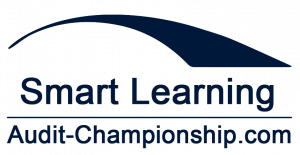Uncovering the Why: Root Cause Analysis for better Audit Outcomes
– Discover the power of root cause analysis in internal auditing to uncover deeper insights, deliver more actionable recommendations, and meet the latest IIA Global Internal Audit Standards. Learn advanced methods, including the Ishikawa diagram, to sharpen your audit team’s ability to analyse cause-effect relationships and drive strategic improvements. –
Description:
Effective auditing requires more than identifying surface-level issues; auditors must dig deep to uncover the root causes behind audit findings. Root cause analysis is a critical component of the internal audit process, enabling auditors to move beyond symptoms and address underlying problems that affect organizational performance. The IIA Global Internal Audit Standards emphasize the importance of applying cause-effect analysis in audit execution and reporting.
This training equips participants with the knowledge and tools to perform robust root cause analyses, enhancing audit effectiveness and delivering more impactful recommendations. In this course, participants will explore practical techniques such as the Ishikawa diagram and other methods to systematically identify, analyse, and address root causes.
The training will also cover how to integrate root cause analysis into audit planning, execution, and reporting phases. Through hands-on exercises, auditors will gain the confidence to apply these techniques in real-world scenarios, driving continuous improvement and ensuring alignment with global audit standards.
By mastering these techniques, auditors will deliver more strategic, actionable insights that align with The IIA’s Global Internal Audit Standards and create lasting value for their organizations. By the end of the course, participants will be empowered to elevate their audit outcomes through focused, methodical analysis.
Objectives:
- Understand the core principles of root cause analysis and its critical role in audit performance improvement.
- Learn the requirements of The IIA’s Global Internal Audit Standards related to cause-effect analysis and reporting.
- Master the Ishikawa (Fishbone) diagram as a key tool for identifying and analyzing root causes systematically.
- Apply root cause analysis techniques to various audit scenarios to uncover deeper insights.
- Learn how to structure audit reports by incorporating clear and actionable root cause findings.
- Develop skills to integrate root cause analysis into audit planning, fieldwork, and reporting.
- Understand how to communicate root cause findings effectively to stakeholders to drive change.
- Foster a continuous improvement mindset by using root cause analysis to enhance organizational controls and processes.
Topics:
- Introduction to Root Cause Analysis in Auditing
- Definition and significance of root cause analysis
- Overview of The IIA Global Standards on cause-effect analysis
- Why understanding root causes enhances audit impact
- The Cause-Effect Chain in Audit Execution and Reporting
- Understanding cause-effect relationships in organizational risks and controls
- Integrating root cause analysis into audit execution asper IIA standards
- Embedding root cause insights into audit reports for stakeholders
- Key Methods for Root Cause Analysis
- Introduction to the Ishikawa (Fishbone) diagram: methodology and application
- 5 Whys technique for digging deeper into problems
- Process mapping and flowcharting for root cause identification
- Practical Application: Root Cause Analysis in Audit Fieldwork
- Applying the Ishikawa diagram during fieldwork
- Conducting interviews, testing, and process analysis with a focus on identifying root causes
- Hands-on case studies: identifying and analyzing root causes in real-world audit scenarios
- Root Cause Analysis in Audit Reporting
- Structuring audit findings using cause-effect analysis
- Creating concise, action-oriented root cause summaries
- Communicating findings to stakeholders clearly and effectively
- Advanced Techniques for Root Cause Analysis
- Incorporating data analytics and visualization tools to support root cause analysis
- Using technology (AI and machine learning) for enhanced root cause identification
- Continuous monitoring and follow-up on root causes post-audit
- Ensuring Continuous Improvement Through Root Cause Analysis
- Embedding root cause analysis into the audit lifecycle for long-term improvements
- Using root cause findings to drive strategic recommendations and control improvements
- Fostering a culture of continuous improvement in audit practices
Training Team
Audit-Championship is a university spin-off. We focus on networking between science and practice. Audit-Championship provides thought leadership and innovative methods to support its customers across all industries in digital transformation. We support audit departments globally as well as national Internal Audit associations with yearly 2.900+ training days and transformation services along an internal audit knowledge value chain.
Inhouse Training on demand
Conditions and Price
Get in touch with us, we look forward to developing a great training event and didactical concept for you and your internal audit team.
Didactics | Methodology
We train you and your team on-site, or we can train you online worldwide in the form of a Virtual Training Series: Interactive lecture, discussion, practical example, case studies, reflection.
ENJOY THE TRAINING
After entering your contact data, we are happy to support you in a timely manner and will be in touch with you within the next 48 hours.

